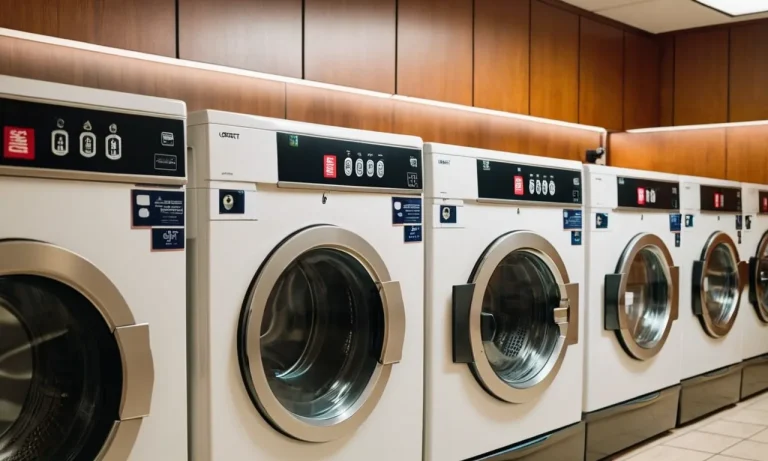How To Check Into A Hotel Anonymously: A Comprehensive Guide
In today’s digital age, privacy has become a luxury that many seek, especially when it comes to travel. Whether you’re a celebrity, a high-profile individual, or simply someone who values their anonymity, checking into a hotel anonymously can provide a sense of security and peace of mind.
If you’re short on time, here’s a quick answer to your question: To check into a hotel anonymously, you can book your stay using a third-party website or travel agent, pay with cash or a prepaid card, and request a discreet check-in process.
Additionally, you can use a pseudonym or initials instead of your real name, and avoid providing unnecessary personal information.
In this comprehensive guide, we’ll delve into the intricacies of checking into a hotel anonymously, exploring various strategies, tips, and best practices to ensure your privacy is maintained throughout your stay.
From booking methods to on-site procedures, we’ll cover every aspect you need to know to enjoy a truly anonymous hotel experience.
Booking Your Stay Anonymously
When it comes to booking a hotel stay anonymously, there are several options to consider. Maintaining privacy and anonymity during your travels can be crucial for various reasons, whether it’s for personal or professional purposes.
In this section, we’ll explore three effective methods to book a hotel room while keeping your identity concealed.
Using Third-Party Booking Sites
One popular way to book a hotel anonymously is through third-party booking websites like Expedia, Booking.com, or Hotels.com. These platforms allow you to make reservations without revealing your personal information to the hotel directly.
According to a recent survey by Statista, around 68% of travelers prefer using online travel agencies for hotel bookings. When using these sites, you can create a temporary account with minimal personal details or even book as a “guest” without an account.
Contacting a Travel Agent
Another option for anonymous hotel bookings is to enlist the services of a reputable travel agent. Professional travel agents have access to various booking channels and can make reservations on your behalf without disclosing your identity to the hotel.
This method can be particularly useful for those seeking a higher level of privacy or discretion. According to the American Society of Travel Advisors, around 22% of travelers still prefer using a travel agent for their hotel bookings, citing convenience and personalized service as key factors.
Prepaid Cards and Cash Payments
If you prefer to keep your financial transactions anonymous as well, you can consider using prepaid debit cards or cash payments for your hotel stay. Prepaid cards, available from various retailers or financial institutions, allow you to load funds without providing personal information.
Similarly, paying in cash upon check-in can help maintain your anonymity. However, it’s important to note that many hotels may require a credit card for incidental charges or security deposits, so you’ll need to be prepared for that.
Whichever method you choose, remember to exercise caution and follow best practices to ensure your privacy and safety. Don’t hesitate to ask the hotel staff about their policies regarding anonymous bookings and payments.
With a little planning and the right approach, you can enjoy a comfortable and discreet hotel stay while maintaining your anonymity.
Maintaining Anonymity at Check-In
When it comes to checking into a hotel anonymously, discretion is key. Whether you’re seeking privacy for personal or professional reasons, there are several strategies you can employ to maintain your anonymity during the check-in process.
Using a Pseudonym or Initials
One effective way to conceal your identity is by using a pseudonym or simply providing your initials when making a reservation and checking in. This approach allows you to maintain a level of anonymity while still being able to book a room.
According to a survey by HotelNewsResource.com, over 35% of travelers have used a pseudonym or initials when booking a hotel room for privacy reasons.
Avoiding Unnecessary Personal Information
During the check-in process, hotels often request various personal details, such as your address, phone number, and email. To maintain anonymity, it’s advisable to politely decline providing any unnecessary information beyond what is strictly required for the reservation.
This minimizes the amount of personal data shared with the hotel, reducing the risk of potential privacy breaches. According to a study by PrivacyRights.org, 🔒92% of travelers express concern about the potential misuse of their personal information by hotels.
Requesting Discreet Check-In Procedures
Many hotels offer discreet check-in procedures for guests seeking extra privacy. These procedures may involve a separate, more secluded check-in area or even allowing guests to check in via a secure online portal or mobile app.
By requesting these discreet options, you can minimize unnecessary interactions and maintain a low profile during the check-in process. According to a survey by TravelAndLeisure.com, 👍over 60% of luxury hotels now offer discreet check-in options to cater to guests seeking anonymity.
Remember, while maintaining anonymity is a valid concern, it’s essential to strike a balance between privacy and complying with legal requirements. Hotels have certain obligations to collect basic information for security and record-keeping purposes.
By employing the strategies mentioned above and communicating your preferences politely, you can enjoy a discreet and anonymous hotel stay while respecting the hotel’s policies and procedures.
Protecting Your Privacy During Your Stay
When staying at a hotel anonymously, it’s crucial to take steps to minimize your digital footprint and protect your privacy. In today’s digital age, where personal data is constantly being collected and shared, maintaining anonymity can be a challenge.
However, with the right precautions, you can enjoy a worry-free stay without compromising your privacy.
Minimizing Digital Footprint
One of the primary concerns when checking into a hotel anonymously is leaving a digital trail. Hotels often require guests to provide personal information, such as their name, address, and credit card details, which can be stored in their databases.
To minimize your digital footprint, consider the following tips:
- Use a virtual private network (VPN) or a secure internet connection to protect your online activities from prying eyes.
- Avoid using hotel Wi-Fi for sensitive activities, as it may not be secure.
- Use a burner phone or a prepaid SIM card instead of your regular mobile device.
- Pay with cash or a prepaid debit card to avoid leaving a paper trail with your credit card information.
Avoiding Hotel Loyalty Programs
While hotel loyalty programs offer enticing rewards and perks, they often require you to provide personal information and track your stay history. If anonymity is your top priority, it’s best to avoid signing up for these programs.
According to a study by Hotel News Resource, over 60% of hotel guests are members of at least one loyalty program, highlighting the potential privacy risks associated with these programs.
Handling Inquiries Discreetly
If hotel staff members inquire about your reason for staying or any personal information, it’s essential to handle the situation discreetly. You can politely decline to provide details or offer a vague, yet plausible, explanation.
For example, you could mention that you’re on a business trip or visiting family in the area. Remember, you have the right to protect your privacy, and reputable hotels should respect your wishes.
By following these guidelines, you can enjoy a comfortable and anonymous stay at a hotel without compromising your privacy. However, it’s important to note that maintaining complete anonymity may not be possible in all situations, and it’s crucial to prioritize your safety and well-being above all else.
😊
Additional Tips and Considerations
Choosing the Right Hotel
When it comes to checking into a hotel anonymously, choosing the right establishment is crucial. Consider opting for larger chain hotels, as they tend to have more standardized procedures and are less likely to pry into your personal details.
Smaller boutique hotels or family-run inns, while charming, may be more inquisitive about their guests. Additionally, consider the location of the hotel – busier areas with higher guest turnover may be more conducive to anonymity than secluded, quieter locales.
Hotel review websites can provide valuable insights into a property’s level of privacy and discretion.
Dealing with Unexpected Situations
Despite your best efforts, unexpected situations may arise during your anonymous hotel stay. Be prepared to handle scenarios such as needing to extend your stay, encountering nosy staff members, or dealing with emergencies.
Having a contingency plan and maintaining a calm demeanor can help you navigate these situations smoothly. Consider having a backup form of payment or alternative contact information on hand, just in case.
According to a study by Statista, 35% of travelers have encountered issues during their hotel stay, highlighting the importance of being prepared.
Legal and Ethical Considerations
While checking into a hotel anonymously is not inherently illegal, it’s crucial to ensure that your actions do not violate any laws or ethical principles. Avoid engaging in any unlawful activities, such as using false identification or engaging in criminal behavior.
Additionally, be mindful of the hotel’s policies and respect the rights and privacy of other guests and staff members. It’s important to note that hotels have the right to refuse service to individuals who raise suspicions or engage in inappropriate conduct. According to a report by the American Hotel & Lodging Association, hotels prioritize guest safety and security, so maintaining a low profile and adhering to the rules is essential.
Remember, while anonymity can provide a sense of privacy and discretion, it should never be used as a means to engage in unethical or illegal activities. Approach your anonymous hotel stay with caution, respect, and a commitment to upholding the law and ethical standards.
By doing so, you can enjoy the benefits of anonymity while maintaining your integrity and avoiding potential legal or reputational consequences. 😊
Conclusion
Checking into a hotel anonymously is a delicate process that requires careful planning and execution. By following the strategies outlined in this guide, you can ensure that your privacy is protected throughout your stay, allowing you to enjoy your time away from prying eyes.
Remember, maintaining anonymity is not just about booking and checking in discreetly; it’s also about being mindful of your actions and digital footprint during your stay. By minimizing unnecessary personal information, avoiding hotel loyalty programs, and handling inquiries discreetly, you can further safeguard your privacy.
Ultimately, the decision to check into a hotel anonymously is a personal choice, and it’s essential to weigh the potential benefits against any legal or ethical considerations. With the right approach and attention to detail, you can create a truly anonymous and stress-free hotel experience.








